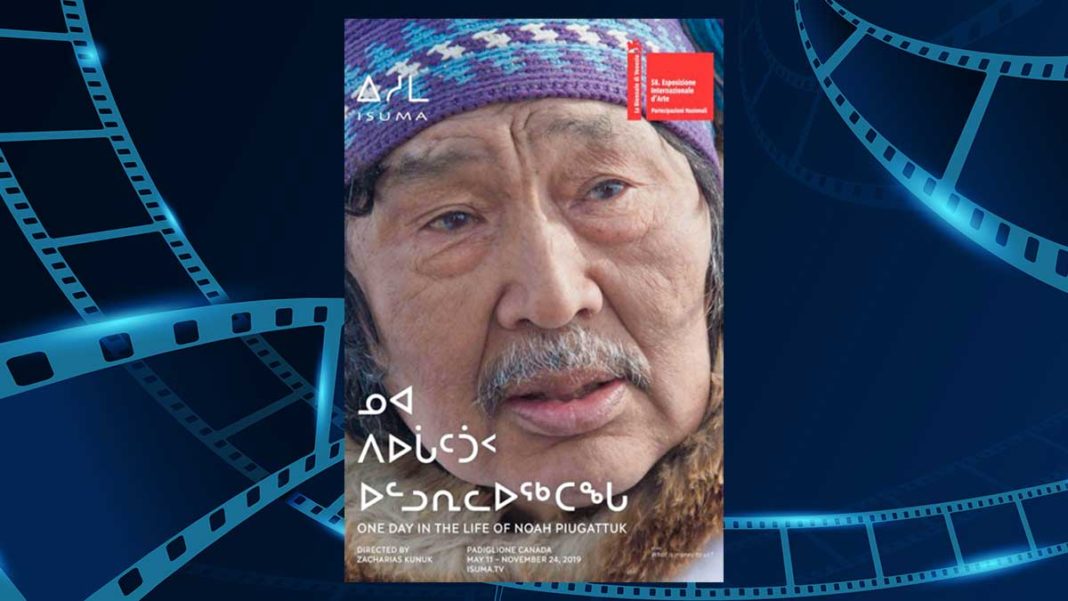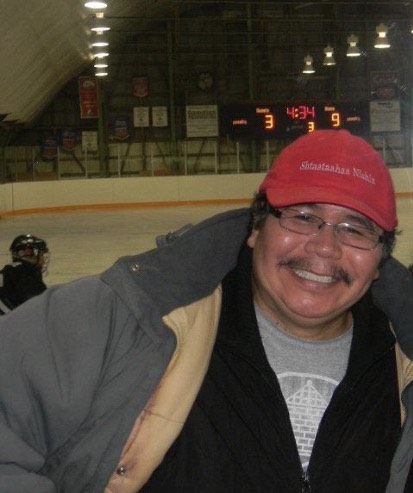by Isobel Harry
M’CHIGEENG – In this year of the pandemic, when most of the Island’s artistic offerings have been postponed until next year, Weengushk International Film Festival (WIFF 2020) pulled off a cultural coup. With restrictions in the number of people at a gathering and all the other cautions to be observed for an ongoing as-yet-unknown time period, the festival format went online, exclusively, for the first time in its three-year history.
WIFF, “a celebration of Indigenous and diverse storytelling through film,” is an offspring of the Weengushk Film Institute (WFI), located just east of M’Chigeeng First Nation, founded in 2002 by filmmaker, actor and artist Dr. Shirley Cheechoo as “an artist-focused centre for capacity building in the media arts for both Indigenous youth and persons of diversity.”
The multi-awarded Dr. Cheechoo, who has written many plays and film scripts that she has produced, directed and in which she has acted, is also Chancellor of Brock University and a recipient of the Order of Canada. Community arts education remains the primary pillar of the charitable organization, first developing an agreement for WFI with Laurentian University for graduates of Lab 2 to receive credits towards a Bachelor of Arts Degree. Since 2016, successful Lab 1 participants receive a Certificate in Film Production from Brock University and five university credits. Now, WFI offers a four year residential, media-arts training and creation program for aspiring, emerging and professional artists, with an impressive list of funders and partners.
WIFF 2020 began on Friday, July 9 with the opening Night film, ‘Red Snow,’ written and directed by Marie Clements, preceded by words of welcome from Ontario Chief Rosanne Archibald and a keynote speech by culture critic and broadcaster Jesse Wente. Ms. Clements is a Métis playwright, performer, director, producer and screenwriter who lives in BC; ‘Red Snow,’ released in 2019, is her sixth film and is brilliantly accomplished on all fronts. Asivak Koostachin, of Cree, Inuit, Dene and Scottish descent, turns in a stellar performance as Dylan, a Gwich’in soldier in Afghanistan who is captured and interrogated. A harrowing, dangerous escape with a Pashtun family is woven through with haunting flashbacks to his home and love for his cousin in the Arctic. This film was riveting, the production values and the acting seamless and stunning and a great way to kick off the festival. Marie Clements took part in a video Q&A session after the film, with audience comments appearing in real time onscreen; this way of introducing filmmakers to viewers of their films was surprisingly intimate, like your own one-on-one with the artist.
The same feeling of intimacy pervaded the closing concert by Wiikwemkoong’s own Crystal Shawanda, sometimes balancing a happy child on her lap there in her rec room, beaming and belting out her trademark blues and country ballads, just for you.
Both the tickets for individual films and the festival pass came with links and passwords sent each day by email. A cornucopia of choices spilled out. Standing by to field any concerns or questions as the festival unspooled its offerings over the weekend was a quick-to-respond presence named ‘Adam,’ ensuring a smooth video experience throughout.
Day 2 of WIFF 2020 presented part one of a retrospective of the films of Shirley Cheechoo: ‘Bearwalker’ (2000) and ‘Johnny Tootall’ (2005). ‘Bearwalker,’ Ms. Cheechoo’s first full length feature film, is a powerful meditation on and wrenching reckoning with prejudice and brutality set in a small northern town in an almost-horror film style. A terrifying old black car without visible occupants plays a major role, silently and eerily gliding up and down the rolling hills of Sheguiandah, the conveyance of an evil creature of ancient legend that can possess someone’s body and mind to spread chaos, destruction and death. The film showcases the considerable skills of Ms. Cheechoo not only as a writer-storyteller and director, but as an actor – she plays one of the four sisters caught up in the vortex of evil; all the actors are striking in their natural affinity for the silver screen, physical and emotional expressions entirely believable in each of the characters’ interpretations. There weren’t enough hours in the day to watch several other of Ms. Cheechoo’s films presented later in the program on her work, films such as ‘Silent Tears’ and ‘Shadow in Deep Water,’ much to the chagrin of this viewer.
Short films, such as ‘Your Name Isn’t English’ by Tazbah Chavez, and ‘Lake’ by Cree director Alexandra Lazarowich highlight a new generation of passionate filmmakers to watch. ‘Standing Rock to the Swamp (Water is Life),’ the story of Indigenous women in Louisiana resisting the land and waterway grabs of the fossil fuel companies, hits home.
Other highlights were ‘There are no Fakes’ by Jamie Kastner, a skillfully-made documentary about “The Picasso of the North,” Norval Morrisseau, the acknowledged founder of the Woodland school of art, and the shocking true tale of the uncovering of a massive fraud operation making and selling thousands of ‘fake Morrisseaus.’
The 2019 film by Inuit filmmaker Zacharias Kunuk, ‘One Day in the Life of Noah Piugattuk,’ in the final day’s program, is a masterwork from the creator of ‘Atanarjuat the Fast Runner’ that takes the viewer into the dread negotiations and misbegotten translations of government/Indigenous land ‘transactions’ enacted since settler days. A brilliant end to an engrossing weekend of art and artists.
Long live the Weengushk International Film Festival, in whatever form it takes in future.





